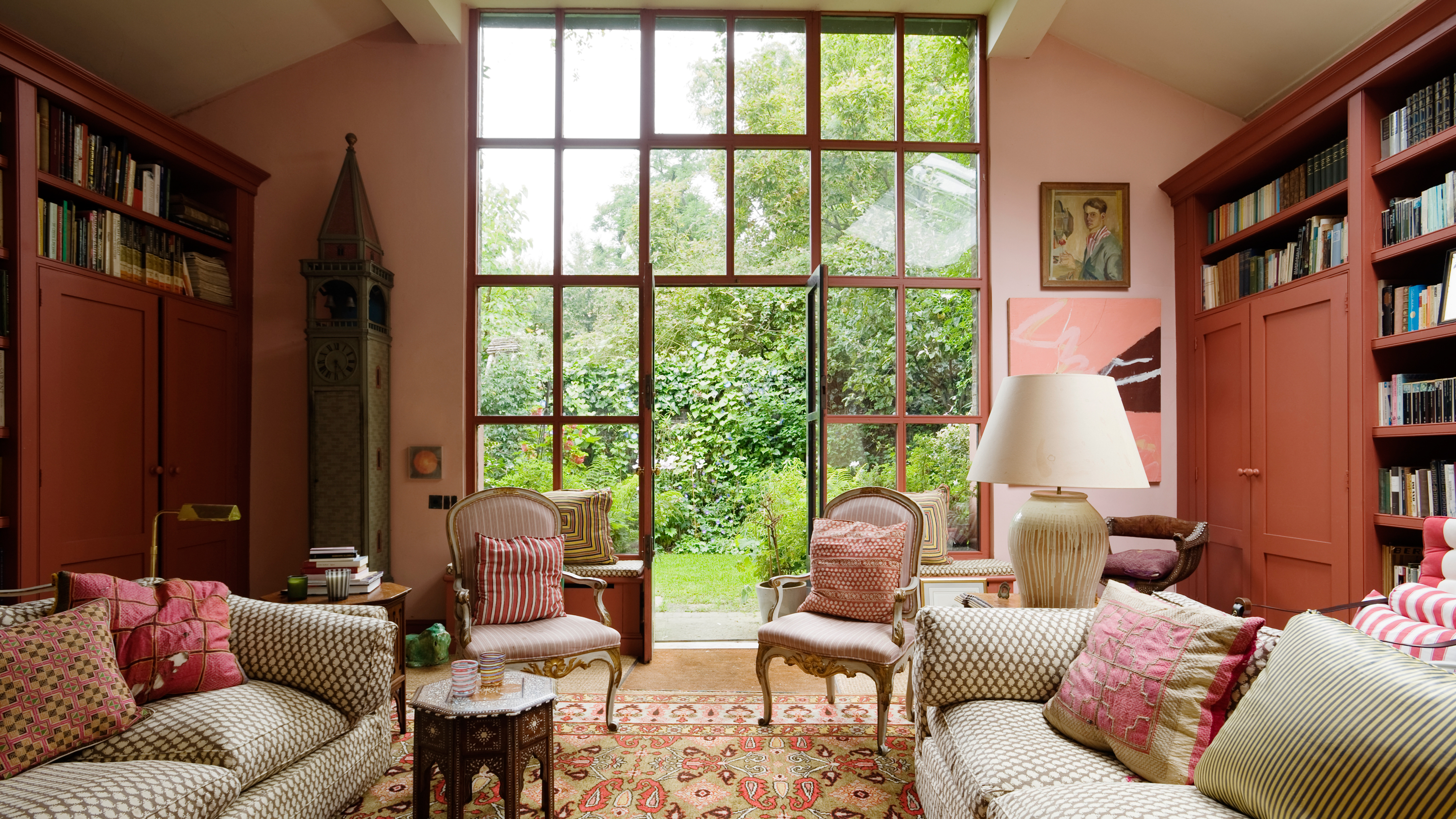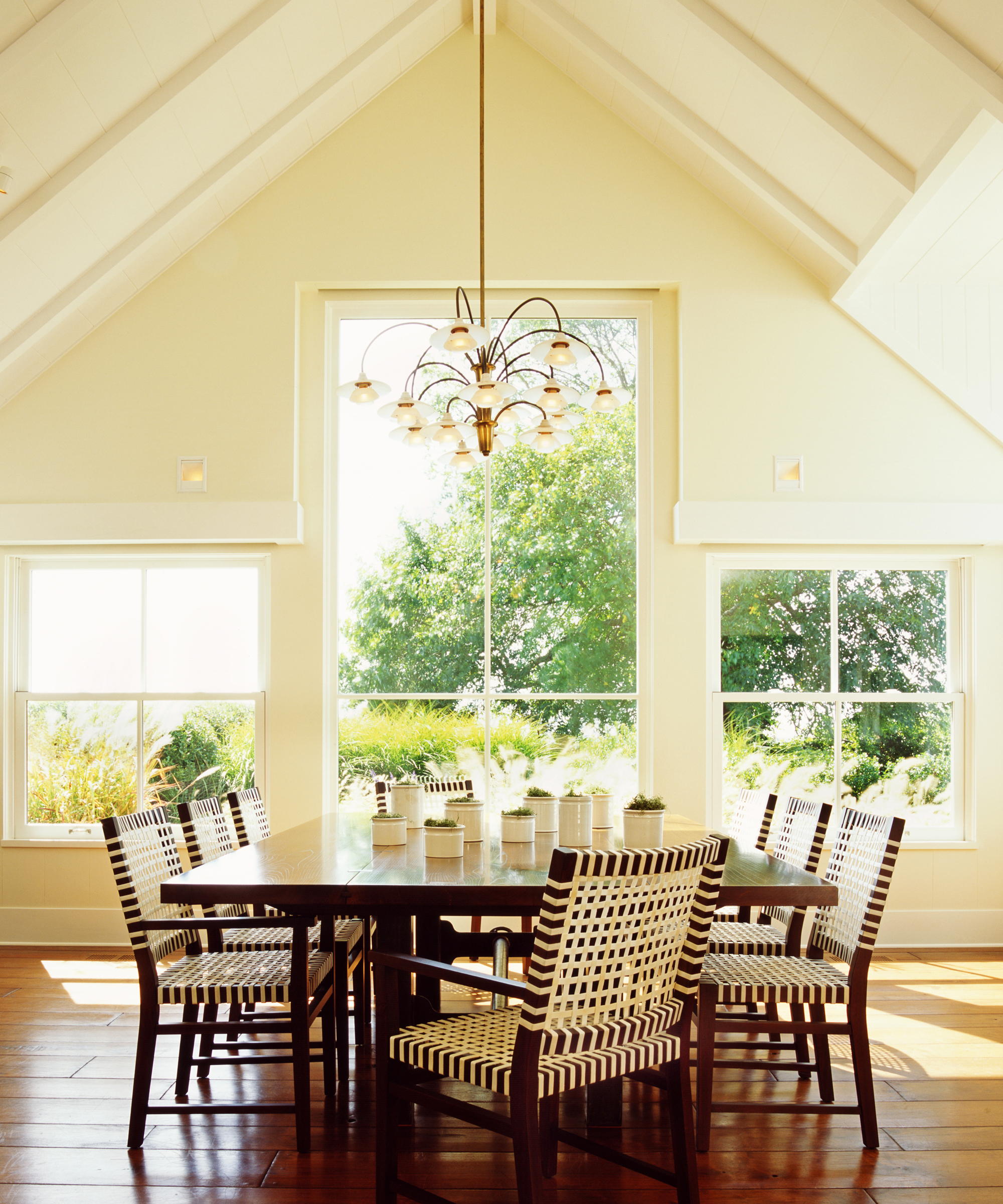Do high ceilings add value? Here's what real estate experts say
Do high ceilings add value, or are they simply a nice-to-have that has no impact when selling? We've asked people in the know what they think


Homes with high ceilings are appealing for many reasons, but are high ceilings one of the best ways to add value to your home? A tall ceiling is an attractive feature because it let more light into a home and creates the sense of spaciousness and airiness. But is the idea that home buyers will pay more for them a fact or a myth? We've asked several real estate experts to give their view.
Do high ceilings add value?

In a word, yes. Our real estate experts were unanimous in agreeing that a high ceiling is generally an attractive feature to buyers. David G. Mitchell, a leading Maryland and Delaware Real Estate Agent and founder of BeachLifeOceanCity.com says, 'higher ceilings are a more custom feature, so buyers are likely to pay more for them. This is particularly true of single story homes.'
Kevin Bazazzadeh, owner of Houston-based Brilliant Day Homes, agrees and says that high ceilings add value because they literally make a home larger: 'Keeping all other variables the same (location, finish level, and square footage), when comparing selling prices of houses with different ceiling heights, a house with a higher ceiling would sell for more.
'In spite of some people's belief that this is an "illusion", the house actually has more living space since adding height leads to having more cubic footage.' – which explains why apartment living rooms with high ceilings feel so much larger, too.
See: The features house buyers want – how to sell a house fast
How much value will high ceilings add?

Katina Asbell, Associate Broker at Real Living Capital City Realty, gives an idea of how much value high ceilings might add to a home. Katina performed a study of homes in an area just outside of the perimeter in Atlanta called Dunwoody. She elaborated: 'In this study the difference in one particular area, as defined by zip code, homes with 9ft or higher ceilings sell for on average about 11% more than homes with 8ft ceiling heights. Indeed, homes with higher ceilings command a higher price.'
A veteran of residential real estate sales with 23 years of experience, Katina says that she has noticed a marked difference between homes built in the 1950s-70s and new builds since the 1980s. While older homes tended to have 8ft ceilings throughout, partly for cost-saving reasons, '1980s America was a time of prosperity. People could afford luxuries and had cash to spend. Paying a few extra dollars monthly to heat or cool a space was not a concern. At the same time the building industry made great strides in efficiencies in insulation, window and door technology and HVAC efficiency. The buying public wanted more opulence and so the builders delivered.'
Sign up to the Homes & Gardens newsletter
Design expertise in your inbox – from inspiring decorating ideas and beautiful celebrity homes to practical gardening advice and shopping round-ups.
So, if you're hoping to make the most at resale thanks to high ceilings, go for a newer home. Katina has found that average price of a home in the Atlanta area built between 1980-2000 build date is $646,000 (high ceilings) as opposed to the average of $581,000 for a home built in 1950-1970.
See: The tricks interior designers use to make living room ceilings look higher
When will a high ceiling not add value?
There are two main case scenarios when a high ceiling may not add value. The first is where the overall finish of the home doesn't do the high ceilings justice, says Kevin: 'If, for instance, a house had a low ceiling, but high-end finishes, it could sell for more than one having low-end finishes but a high ceiling. Hence, a house with a high ceiling won't always sell for more than one with a low ceiling.'
Neighborhood specifics can also play a major part, explains Mitchell: 'In some cases there isn't any kind of ceiling height market formula we can apply to every property because real estate adjustments vary depending on the neighborhood, price range and market type – not everyone's needs will be met by such an approach!'
In other words, if the demand in your area is generally for cheaper homes, people just may not care enough to pay over 10% more for the height of a ceiling.

Anna is a professional writer and academic. She taught English Literature for several years before joining Future where she wrote for Real Homes, Homes & Gardens and Livingetc for four years. She is a regular contributor for Parade Home, BiggerPockets, and many other publications. In her spare time, Anna enjoys hiking and gardening.
-
 Bathroom colors going out of style in 2025 – and the designer-approved shades to decorate with instead
Bathroom colors going out of style in 2025 – and the designer-approved shades to decorate with insteadThese are the colors to swerve in your bathroom decor if you want to create a stylish and design-led space, according to experts
By Emily Moorman
-
 I swear by the ‘ETC’ method to prevent clutter and save money – my expert-backed checklist is transformative
I swear by the ‘ETC’ method to prevent clutter and save money – my expert-backed checklist is transformativeNow I Edit The Cart and save time, money, and energy
By Chiana Dickson